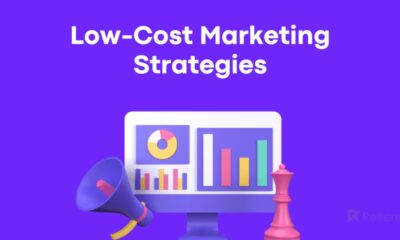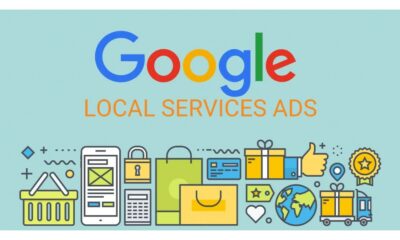Business
Tips To Maximize the Benefits of Your Savings Accounts and CDs

In 2021, inflation began to rise as a result of the government’s generous stimulus initiatives, which had left consumers with plenty of cash. In 2022 and 2023, the Federal Reserve raised interest rates eleven times in an effort to fight inflation. As a result, borrowing became more expensive, which hasn’t been good for borrowers or credit card debt holders.
Positively, though, banks were now making larger payments as a result of the Fed’s series of interest rate hikes. Moreover, rates on CDs and savings accounts are rather appealing these days.
Take advantage of the higher savings rates available today if you have extra cash. However, it’s also critical to exercise prudent account management. Therefore, you should use these three suggestions.
1. Research Indices
You might feel at ease and be a huge admirer of your bank’s app or customer support. However, the high interest rates of today won’t last forever. Thus, it’s a good idea to compare rates offered by various banks if you’re planning to invest in savings or a certificate of deposit.
It frequently only takes a few minutes to open a new bank account. Typically, you will need to provide some basic details such as your name, phone number, address, and Social Security number. Additionally, opening a new bank account is typically simple because you can frequently link to an already-existing one and make electronic money transfers.
Investigating rates is especially beneficial if you intend to open a longer-term CD. It’s actually a pretty excellent moment to do so, as it appears that rate hikes are coming to an end, and rate cuts are imminent. It would be wise to lock your money in for a longer term at this point, such as 48 or 60 months, as you might not find the same attractive CD rates after that.
2. Understand When To Select a CD Over a Savings Account And Vice Versa
Rates on CDs are typically greater than rates on savings accounts. However, there are instances in which it makes more sense to save regularly rather than investing money in a certificate of deposit (CD). It is not advisable to invest funds in a CD that you have designated for:
- Unexpected or Emergency Costs
- short-term costs, such as a vacation, furnishings, or a down payment on a vehicle
- Very distant objectives, like as retirement or college, are best invested in money you won’t need for at least ten years.
3. Stack Your CDs for Greater Adaptability
A significant penalty may be incurred for cashing out a CD before the payment is due; the precise amount may vary depending on your bank and the duration of the CD. Establish a CD ladder so that you do not find yourself in a scenario where you have to pay a penalty because you require the money that is locked up in a CD. In this manner, you’ll have payments due at various points during the year.
Let’s take an example where you have $10,000 to invest in a CD. That amount might be split into four $2,500 halves, and you could open:
- A single CD for three months
- A single 6-month
- 9-month CD
- A single 12-month CD
In this manner, every three months, you can access a percentage of your money.
Now is a terrific time to be bankrolled. Make the most of your CDs and savings by following these pointers.
-

 Tech3 weeks ago
Tech3 weeks ago12 Essential Marketing Tools Every Small Business Owner Should Try
-

 Business4 weeks ago
Business4 weeks agoSmart Strategies to Stay One Step Ahead in a Competitive Market
-

 Business4 weeks ago
Business4 weeks ago9 Low-cost Marketing Strategies and Ideas That Offer a Good Return on Investment for Small Businesses
-

 Startup2 weeks ago
Startup2 weeks agoEssential Tips for New Retail Business Owners to Succeed in a Competitive Market
-

 Tech4 weeks ago
Tech4 weeks agoHow Small Business Can Start with Marketing Automation Software
-

 Tech6 days ago
Tech6 days agoAdobe Partner with Benny Blanco to Help Small Business Branding in ‘Create Anything’ Campaign
-

 Business3 weeks ago
Business3 weeks ago7 Essential Investment Success Tips Every Investor Should Know: How to Beat the Market
-

 Tech3 weeks ago
Tech3 weeks agoGoogle’s Change to Google Local Services Ads Could Have an Impact on Millions of Small Businesses

























